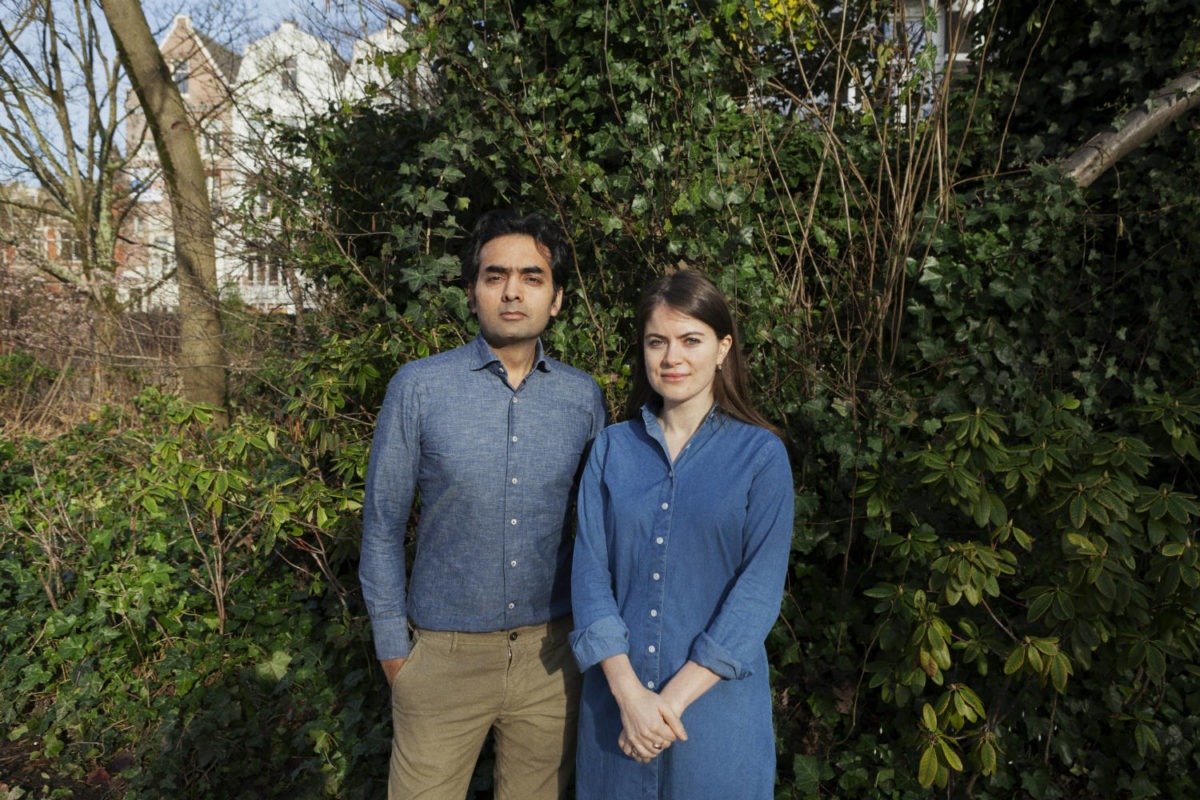Brands
No loose threads: the shirts of 100 Hands
Photography: Jussi Puikkonen
Amritsar, India: Bathed in an amber light, the city is known for carpets, fabrics and its shimmering Golden Temple. It is also home to the factory of 100 Hands – an Amsterdam-based shirtmaker that sends each one of its shirts through 50 people before it reaches its wearer. We shook two of these hands: those of Varvara and Akshat, the couple who pulls all the strings, yet leaves no loose threads.
Investing in beauty
“My family has been in the spinning industry for a hundred-and-sixty-two years and six generations,” says Akshat. “But the shirting is only twenty-two years old. My father and uncle started a small workshop in India. It was just a hobby: to make shirts for themselves and their friends on the same level as those taking tailors days to make.”
In 2014, Akshat and Varvara made the difficult decision to leave behind their management roles in investment banking in Amsterdam. Embodying the next generation, Akshat not only wanted to join the family business, but enhance it: “We reviewed the total process in our atelier and realized we have something unique,” says Varvara. “Each shirt goes through fifty people before it reached its wearer.” In other words, every stage of the shirt-making process – cutting, pasting, pattern matching, etc – would be done by a different pair of hands. “It’s a very unique but time consuming process. Yet it produces the best a person can expect when it comes to shirting.”
Not a single loose thread
A central idea behind 100 Hands was to honour India’s craftsmen, artisans and traditions. “A lot of people don’t realise that the art of shirtmaking wasn’t born in Europe – they just inherited it,” says Akshat. “For example, China and India have been doing embroidery and stitching since before Christ.” They use largely forgotten techniques such as zardozi, aari and kashida – kashida being Kashmiri embroidery that uses one constant stitch.
“We let our work speak for itself,” says Varvara holding up two shirts, one from their Black line and the other from their signature Gold line. More than twenty hours are spent on every shirt – a single buttonhole takes almost an hour. A quality control list covers 50 points, including their signature thread-check: “Our shirts cannot have a single loose thread. If a thread breaks, we unpick the shirt and start again.”
“It’s a very unique but time consuming process. Yet it produces the best a person can expect when it comes to shirting.”
Dealing with denim
How does 100 Hands fair with denim? “I don’t think it’s any easier than a cotton shirt. It requires garment washing and so demands more care and control. It’s like an art,” says Varvara. “We try to use eco-friendly enzymes, but they don’t always give the desired results. But the real beauty of a denim shirt comes during its uneven bleeding over time.”
Akshat and Varvara prefer to use the more compact and softer denims from Italy, as well as Japanese denims that have a natural coarseness due to their open weave. “On a few occasions we’ve done special collaborations, spending months handweaving just metres of indigo fabrics from India – that’s why it’s called ‘indigo’, by the way, it’s from India’’.
“Sometimes I think: ‘What have I gotten myself into with 100 Hands?’. We’re almost too obsessive,” smiles Akshat. “People think that India is cheap. But they don’t realise that it’s a country of artisans and the economy and the dynamics of this country is changing rapidly.”

